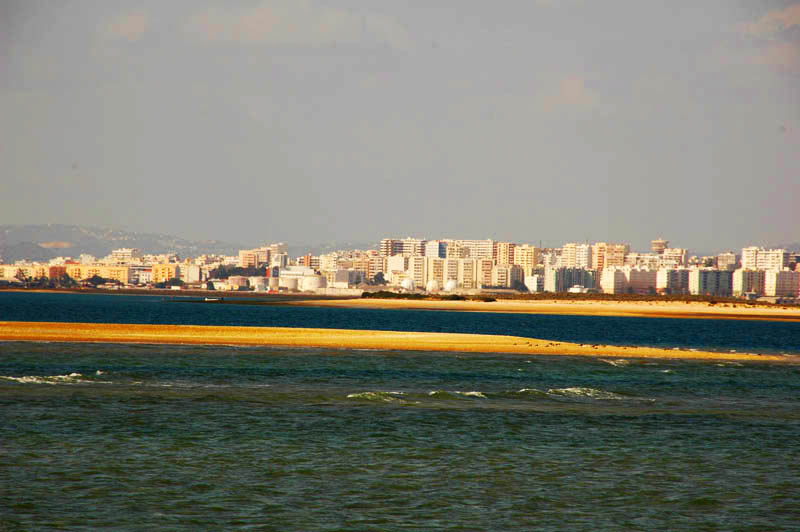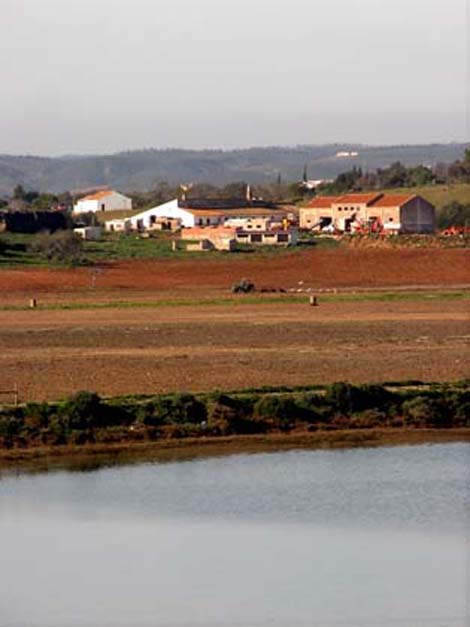 Quercus elected the beginning of the process of reintroduction of the Iberian Lynx in Portugal, the demolitions in the Natural Park of Ria Formosa and the unprecedented judicial condemnation of the owners of Quinta da Rocha, in the Ria de Alvor, to the complete restoration of the habitats they had destroyed, as three of the best environmental facts of 2014.
Quercus elected the beginning of the process of reintroduction of the Iberian Lynx in Portugal, the demolitions in the Natural Park of Ria Formosa and the unprecedented judicial condemnation of the owners of Quinta da Rocha, in the Ria de Alvor, to the complete restoration of the habitats they had destroyed, as three of the best environmental facts of 2014.
In its balance, that environmental association also chooses, among the good things that happened in the year that has just ended, the creation of the Site of Community Importance Ria Aveiro – Rede Natura 2000, the discussion of the energy and climate package for 2030 and the bet on mobility on bicycle.
In contrast, Quercus also elects Mobility as the worst environmental facts, placing at the top of its list the outbreak of Legionella.
Of the negative facts, the association also chose the fact that the Government had created "a "green way" for offenders without any public scrutiny", the construction of the Veiguinhas dam in Bragança in the heart of the Montesinho Natural Park, the announcement of the beginning of the works of the Tâmega cascade dams, affecting important natural areas in the districts of Braga and Vila Real, the creation of the Exceptional Regime for Urban Rehabilitation (RERU), the «systematic postponement of a true and effective environmental responsibility of companies», the « lack of revision of the legislation on invasive non-indigenous (exotic) species', the fact that the Comporta-Galé Site of Community Importance has been without a Management Plan for another year, the legalization, by the ICNF, and the disturbance of the nesting of protected species in the Tejo Internacional Natural Park and finally the maintenance of the pollution problem of the Noéme River, in Guarda.
In its balance, the National Association for Nature Conservation also outlines perspectives for the new year of 2015, putting Green Taxation right at the top of its highlights.
He also hopes that the Asbestos Law will be complied with and for a National Asbestos Strategy, expresses hope at the United Nations Climate Change Conference, to be held in Paris, defends the need to ban river navigation in the Tagus Natural Park International during the breeding season, it announces the beginning of the preparation of the Management Plans for Sites of Community Importance.
According to the national board of Quercus, “2014 was marked by the continuation of the financial and economic crisis of recent years, even though there was a small economic recovery in the country. In an increasingly pressing context of behavior change, in order to ensure the sustainability of our Planet, the great challenge is to be able to reconcile economic growth in the future, in all its aspects, with individual and collective attitudes that are more respectful of the Environment".
The association considers that «the financial crisis that we have been going through, in addition to reducing the well-being of the majority of the population, has also ended up diverting public attention from the serious environmental problems that we continue to experience. , both locally and globally'.
«Following a logic focused on the short term, and often under pressure from international organizations and private entities that continue to condition our policies, we have been witnessing, also in the environmental field, several decisions guided by immediate objectives, instead of privileging actions with positive implications in the medium and long term», adds Quercus' management.
 The worst environmental facts of 2014
The worst environmental facts of 2014
Legionella outbreak
The Legionella outbreak that occurred in early November 2014, in the municipality of Vila Franca de Xira, caused 12 deaths and 375 patients, and eight people are still hospitalized today.
This was undoubtedly a sad episode in our most recent history, which clearly reveals the importance of maintaining close vigilance and close inspection of industrial units in operation, since the correspondence of the strain of bacteria isolated in one of the cooling towers was demonstrated. from a local manufacturing unit, with the strain identified in the patients.
It is essential that after an incident of this seriousness, all legal, technical and operational procedures are reinforced, so that the State can guarantee its citizens a healthy environment and a climate of social tranquility.
Government creates “green way” for offenders without any public scrutiny
Decree-Law No. 5/165 was published on November 2014, which will come into force in 2015.
This diploma aims to "create a mechanism that allows the assessment of the possibility of regularization of a significant number of production units that do not have a valid exploration or exercise title given the current conditions of the activity, namely due to non-compliance with the planning plans of the territory in force or with administrative easements and restrictions of public utility”, aimed at industrial establishments, livestock farms, waste management operations and quarries.
Among others, the document determines the suspension of administrative proceedings directly related to the lack of exploration title or to the violation of the norms related to compliance with the environmental or territorial planning rules that are in progress.
Construction of the Veiguinhas dam in Bragança in the heart of the Montesinho Natural Park
This dam, which was rejected several times by the services of the Natural Parks, was eventually built due to many political pressures.
The Montesinho Natural Park is undervalued, as the dam and respective accesses were built in the place that was most important for the fauna of that Natural Park – the headwaters of the River Sabor.
Insistence on the part of the Municipality of Covilhã to build the unnecessary Ribeiras das Cortes Dam
The Municipality of Covilhã, even with a new executive, continues to demand the construction of the Ribeira das Cortes Dam, without fully demonstrating that this is really necessary.
Knowing that the heightening of the existing Dam in Cova do Viriato can meet the needs during the summer, Quercus will continue to fight for whatever means are necessary against this unreasonable pretension, hoping that the ICNF, as the national authority for the Conservation of Nature and Biodiversity, this time it is concerned with defending the natural values of the Serra da Estrela Natural Park, and that the European Commission should once again show the same courage in not allowing the co-financing of the dam with community funds.
Announcement of the start of work on the Tâmega cascade dams affecting important natural areas in the districts of Braga and Vila Real
This set of 3 dams is a public-private partnership (PPP) contracted between the Portuguese State and the Spanish electricity company IBERDROLA, within the scope of the National Dam Plan implemented by the Government of José Sócrates.
This project calls into question important natural values with emphasis on the negative impacts on wolf populations in the Natura 2000 site of Marão-Alvão.
Exceptional Regime for Urban Rehabilitation (RERU)
The RERU – Exception Regime for Urban Rehabilitation (DL 53/2014) – exempts the urban rehabilitation activity from complying with requirements in various areas, from accessibility, anti-earthquake protection, to the improvement of thermal and acoustic comfort conditions , as well as the improvement of energy efficiency, claiming economic savings in carrying out this rehabilitation.
Systematic postponement of true and effective environmental accountability of companies
Six years after the Law on Environmental Liability entered into force, most potentially polluting companies are still not in compliance with the legislation and remain totally unprotected, without any guarantees, or have contracted insufficient guarantees.
Decree-Law 147/2008, of 29 July, provides that potentially polluting companies constitute a financial guarantee in the form of a bank guarantee, fund or transfer of risk to an insurance company, to respond for any environmental damage they may inflict .
However, many are not even aware that they are covered by the legal obligation to provide such guarantees and the Government has not yet established, by decree, minimum limits for the amounts of financial guarantees that operators have to carry out, to deal with any accidents, nor did it define the guidelines for the constitution of the same guarantees.
Lack of review of legislation on invasive (exotic) non-indigenous species
Another year that has passed without the necessary updating of the legislation that prevents the introduction of invasive alien species, namely addressing the problem of unintentional introduction routes, create an early warning and rapid response system and define specific plans to eradicate or control invasive alien species established at an appropriate spatial scale.
It is a legislation that was created in 1999 and, since then, has not undergone any improvement due to the advance of existing scientific knowledge, so it is not understood that it is an issue that remains excluded from the political priorities of the Ministry of the Environment, Spatial Planning and Energy.
Site of Community Importance Comporta-Galé: another year without a Management Plan
Despite the Portuguese State's commitment to the European Commission with a view to implementing the Management Plan for the Comporta-Galé Site of Community Importance (Natura 2000 Network), which served as a guarantee for the filing of Quercus' complaint regarding the construction of projects tourism-real estate leveraged by bank impairments, the truth is that the public tender for its preparation by the ICNF remains forgotten.
Quercus has already made it known that if the Secretary of State for Spatial Planning and Nature Conservation does not find the financial means and instruct ICNF to launch the tender, it will ask the European Commission to reopen the process against the Portuguese State and that , immediately refer it to the Court of Justice of the European Union, based on the intentional non-compliance with community legislation by the Portuguese State and the failure to provide sufficient guarantees of non-recurrence.
ICNF legalizes the disturbance of the nesting of protected species in the Tejo Internacional Natural Park (PNTI)
The amendment to the PNTI Land Use Plan “legalizes” river navigation during the nesting season in stretches of the Tagus and Ponsul rivers that are sensitive from the point of view of conservation of the rare or threatened avifauna that breeds there, despite the respective diploma legal, if one admits that, at the base of the creation of this Protected Area, was the need to “ensure reproduction conditions for species very susceptible to disturbance, such as the Black Stork, the Egyptian Vulture, the Griffon Vulture, the Eagle- eagle, the Bonelli's Eagle and the Eagle Owl, among others”.
In the last 20 years, the 2014 nesting season was the first in which the disturbance of sensitive avifauna in the PNTI by river navigation was no longer prohibited.
Problem of pollution of the Noéme river, in Guarda, remains
The problem of pollution in the Noéme River, in Guarda, persisted in 2014 and will probably continue in 2015, as this seems to be the political will of the Guarda Municipal Council.
In November of this year, Quercus was informed that equipment for analyzing liquid effluents was still to be installed in the pumping station at the factory's exit, equipment that will be a candidate for the 2014-2020 Community Funds.
Without this equipment, the problem of river pollution remains, as the domestic WWTP in São Miguel refuses to receive industrial effluent.
However, some questions continue to arise: What will happen if the equipment is not eligible for the expected support? What is the real cost of equipment of this nature? What verification is currently being carried out to reduce the industrial pollutant load?
It is also currently awaited the action of the General Inspection of Agriculture, Sea, Environment and Spatial Planning (IGAMAOT) and the Public Ministry on this problem of river pollution.
The best environmental facts of 2014

Creation of the Ria Aveiro Community Importance Site – Natura 2000 Network
The inclusion of the Ria de Aveiro in the National List of Sites (Council of Ministers Resolution No. 45/2014), a decision that allows the strengthening of the conservation status in what is considered the most important Portuguese wetland north of the Tagus river, it was important news because it reinforces the protection of several species of birds, of ichthyofauna communities, namely migratory fish species that are very threatened in Portugal, such as the marine lamprey, the Shad and the Savelha and estuarine and coastal habitats protected by the Habitats Directive .
Discussion of the 2030 energy and climate package
Portugal was the European country to place more ambition in the 2030 energy and climate package discussed over the past few months and approved at the October European Council, helping to raise the goals of Europe and other countries.
With this position, Portugal shows that it is making the right bet on the path of development based on renewable energies and a low-carbon economy.
Beginning of the reintroduction process of the Iberian Lynx in Portugal
The last attempt to re-establish a viable wild population of Iberian Lynx in a territory that was part of its historical geographical distribution area has already begun, with the release of two animals in an adaptation enclosure.
Quercus has already signed the Pact for the Conservation of the Iberian Lynx in Portugal, as a way to support the most important operation ever to be carried out with a species in Portugal, especially with the most threatened feline in the world, but warned of the existence lack of planning and organization and insufficient allocation of resources that can jeopardize the process in the medium and long term.
Start of demolitions in the Ria Formosa Natural Park
Demolitions began at Praia de Faro, an absolutely decisive action that has been delayed for decades.
Despite being positive, Quercus warns of the need to stop any occupation existing in the dune cordon that does not have a proven public interest, obviously safeguarding the always delicate social situations that a decision of this type obliges, and which is supported without hesitation in the renaturalization of the barrier islands and peninsulas of the Ria Formosa Natural Park, which are the only viable coastal defense line to protect populations and assets from the effects of climate change.
The owners of Quinta da Rocha, in the Ria de Alvor, have been sentenced in court for the complete restoration of the habitats they had destroyed
The Central Administrative Court of the South confirmed the conviction of the owners of Quinta da Rocha, in the Ria de Alvor, which requires the complete restoration of the habitats they had destroyed, and to refrain at all times from any interventions in areas that have species or protected habitats.
This decision has a very significant impact on Portuguese environmental law, by demanding the full restoration of destroyed natural values, forcing Aprígio Santos' company to submit to ICNF a plan for its full restoration and culminating a process that has been going on since 2007 and involved dozens of complaints, notices and administrative infractions for environmental damages carried out on this property.
bicycle mobility
On January 1, 2014, Law 72/2013 came into force, with amendments to the Highway Code, which brought bicycle mobility to a level of greater legal protection, at the level that had existed for many years in most countries of the Europe.
It remains to be seen what will happen to the Cycling Plan prepared by the IMT (Institute of Mobility and Transport) for the improvement of cycling infrastructure, but which has not yet been approved by the Government and therefore has not yet been budgeted for.
It also remains to be seen what will happen with other road legislation that needs to be changed (Regulation of Road Signaling, etc.) to provide more conditions for sustainable mobility by bicycle.
Environmental perspectives for 2015
 Green Taxation
Green Taxation
The measures contained in the Green Taxation Reform, proposed by the Government and approved by the Assembly of the Republic with the favorable votes of the parliamentary majority, enter into force in 2015.
Although it is recognized that this reform represents a first step towards changing the existing paradigm, it will be very important that in 2015, the year of legislative elections, it is possible to find other political consensus in order to improve this fiscal package in the future.
It will be essential to give another signal to society, especially with regard to the framework and justice of the reform, so that a vision of the future prevails, so that our country can face the challenges of the “post-Troika ” based on a new sustainability paradigm.
Votes for the Asbestos Law to be fulfilled and for a National Asbestos Strategy
2015 should be the year for the definition of an action plan that foresees and encourages the effective survey of all materials containing asbestos in public buildings, which makes it possible to assess the risk for its users and define the situations that need monitoring, or a more urgent action such as removal, pursuant to Law No. 2/2011, of February 9th.
It should be noted that in most of the buildings only the «detection of the presence of asbestos cement» was carried out, leaving out possibly more dangerous materials in the interior, as well as the buildings of the municipalities and autonomous regions.
In 2015, a National Asbestos Strategy needs to be drawn up.
United Nations Climate Change Conference in Paris
The year 2015 will be marked by the United Nations Climate Change Conference in December, in Paris, which is expected to lead to a new agreement for the reduction of greenhouse gases worldwide.
It will always be a difficult decision because it will create brakes on the massive use of fossil fuels, paving the way for the necessary and urgent transition to a low carbon economy, not only for developed countries, but also for emerging economies.
It will also be necessary to support countries with the fewest financial resources and the most vulnerable to adapt to climate change.
Ban river navigation in the Tejo Internacional Natural Park (PNTI) during the breeding season
In 2015, it is expected to be able to cancel the amendment to the PNTI's Land Use Plan through the courts, in order to interdict river navigation during the breeding season of species such as the Black Stork, symbol of this Protected Area.
Beginning of the preparation of the Management Plans for Sites of Community Importance
Quercus considers 2015 to be a decisive year for the consolidation of the Natura 2000 Network in Portugal, the year when the elaboration of the Management Plans started, the year for evaluating the inaccuracies of some of the limits of Sites of Community Importance and Special Protection Areas for Birds, the designation of new Sites and the process of extending the Natura 2000 Network to the marine environment.
It would also be desirable for this to be the year in which fears that the European Commission intends to ease the rules that prevent the destruction of the Natura 2000 Network by private investments of dubious public interest were not confirmed.


















Comments